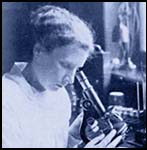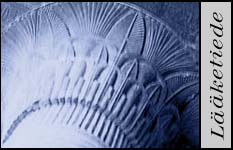 |


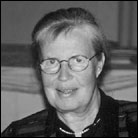
|

PIRJO MÄKELÄ
vaccines for local and global needs
1930-
|
 |
 |

Research Professor Pirjo Helena Mäkelä started her career in the 1960's,
which was the heyday of molecular biology: humankind had discovered the
basic principles of the molecular basis of life.

Mäkelä started studying medicine in 1949 and embarked on laboratory
research together with her future husband, Olli Mäkelä. After Helena
Mäkelä had finished her doctoral dissertation in 1960, the Mäkeläs left
for California to do post-doctoral research: at Stanford University they
both worked under the recent Nobel laureate Joshua Lederberg, but on
different subjects.

Helena Mäkelä brought back a whole new field of science to Finland -
microbial genetics. Some twenty years later, microbial genetics served
as the basis for a new branch of biotechnology - gene manipulation. From
1963 to 1964 the Mäkelä family lived in London, where they had better
access to state-of-the-art research facilities and international
cooperation.

The international research cooperation resulted in the discovery of the
mechanism by which genes determine the complex structure of
polysaccharides, using bacterial lipopolysaccharide as an example. This
discovery was of central importance for the whole field of molecular
biology. It was common knowledge that genes determine the structure of
protein molecules, but until then, scientists did not know how the
structure of other components of the body and the cells is determined.
The work with polysaccharides proved that its structure was determined
by genes and that the process was steered by enzymes, i.e., proteins
determined by genes. Subsequent research has shown this principle to be
universal, applicable to the formation of polysaccharides in both plants
and animals.

In 1964 Helena Mäkelä was appointed Head of the Department of
Bacteriology of the State Serum Institute (presently the National Public
Health Institute). The new methods of microbial genetics now opened up
the opportunity to study the etiology of infectious diseases: the
struggle for survival between the microbe and its host.

Helena Mäkelä has actively participated in the development and
organisation of bacteriological diagnosis and monitoring of infectious
diseases in Finland. As the chair of the Medical Research Council of the
Academy of Finland she has greatly contributed to Finnish science
policy, and as the chair of Physicians for Social Responsibility -
Finland she has been actively involved with issues concerning research
ethics. Her international activities are highlighted by her positions as
the chair of the International Endotoxin Society and the International
Union of Microbiological Societies.

 1 1
 2 2
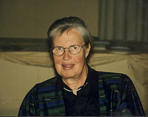 3 3


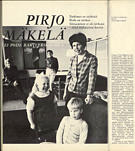 4 4

1 Pirjo Mäkelä is an internationally acclaimed researcher.
In 1969 she received the Robert Koch Award from Germany.

2 Front page news in Medical Tribune.

3 Pirjo Mäkelä 1998.

4 Magazine article on Pirjo Mäkelä.

|
|
